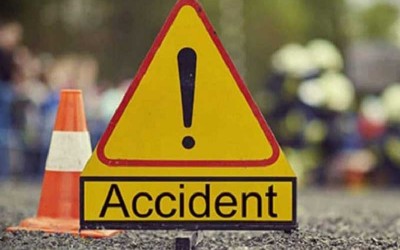What is Subrogation in a Car Accident Claim and Why is It Important?

Car accidents can result in more than just the injured person suffering a loss. The law of subrogation allows non-injured parties to recover their losses through the injured person’s claim for damages. While this can be confusing to understand, it has great importance to you when it comes time to negotiate a settlement of your claim.
The law of subrogation exists because, if a driver’s negligence causes you to suffer an injury, the consequences of that injury can be felt far beyond you personally. Often times others suffer losses as well. Obviously those close to you, like your children or your spouse, are the first that come to mind. If you suffer, they suffer. But it goes beyond that. For example, your insurance company can suffer a loss as a result of your car accident as well. Think about it: if you have private medical insurance that pays for physiotherapy, and they have to pay for this treatment because you were injured in a car accident, then that car accident has resulted in the insurance company suffering a financial loss.
Another example, if worker’s compensation income benefits. If you receive this because someone’s negligence injured you in a car accident while working, then the Worker’s Compensation Board has also suffered a financial loss because of that driver’s negligence.
You might be wondering, “What does this mean, and why should I care?”. Well, two main reasons: (1) the law requires you to know about this and do something about it, and (2) it can affect how much compensation you personally receive in a personal injury claim. Enter the law of subrogation.
Subrogation is defined as “the substitution of one person for another”. It legally allows other people (usually insurance companies) to “piggy back” on top of your claim for damages in order to be reimbursed for their losses too.
If your private health insurance pays for treatment because of a car accident, they can (and usually will) advance what is called a subrogated claim over any claim you bring for your own losses. For example, if they spent $5,000 in medical care because of a car accident, they will often demand that the insurance company of the negligent driver reimburse them for that. Or they will ask that you do so once you have settled your own claim for damages.
This later approach can affect your net settlement. That’s why it’s important to know about the law of subrogation so that you can maximize your own compensation.
Subrogated rights in today’s world usually come from contract or legislation. Your policy with your private health insurance company will typically give them a right of subrogation if you’re injured in a car accident. Legislation grants entities like the Worker’s Compensation Board subrogated rights.
These contracts and statutes will often place a responsibility on the injured person to notify their private health insurance company (for example) that they are bringing a claim for damages. If you’re able to do this in a timely manner, before settlement or judgement, and if fault for the car accident isn’t an issue, then the negligent driver’s insurance company will usually pay for these subrogated losses over and above the losses you have personally suffered.
However, if your private health insurance company (for example) finds out about your insurance claim after you receive compensation and were denied the chance to advance their losses as part of it, you run the risk of them getting reimbursed out of YOUR portion of the settlement. Timely notification of your claim can therefore affect your net settlement.
It is also important to know that most subrogated claims are subject to a “pro rata” deduction. It may be that liability for the car accident is in dispute and the other driver asserts that he or she isn’t responsible for the accident. In these kinds of situations, rather than accepting the risk of an “all or nothing” trial decision, some people may wish to negotiate a settlement based on risk. For example, if your losses are $100,000, but there is a 25% chance you won’t be able to prove fault at trial, a fair settlement would be $75,000.
What happens to any subrogated claims in this situation? Well, the subrogated claim should be no better or worse off than you. This means that if you reasonably accept 75% of your total losses (because of liability issues), then the subrogated claim should be similarly reduced. This is what is known as a “pro-rated reduction”. Both your claim and the subrogated claim are reduced in the same proportion.
This allows tricky liability cases to settle in a way that is fair to everyone who has suffered a loss. If you have more questions about how subrogation may affect your car accident claim, it is recommended that you speak with an experienced car accident lawyer.






















